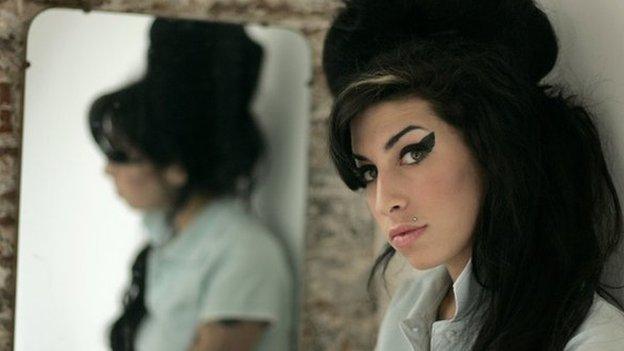Blanchett lesbian drama 'a labour of love'
- Published
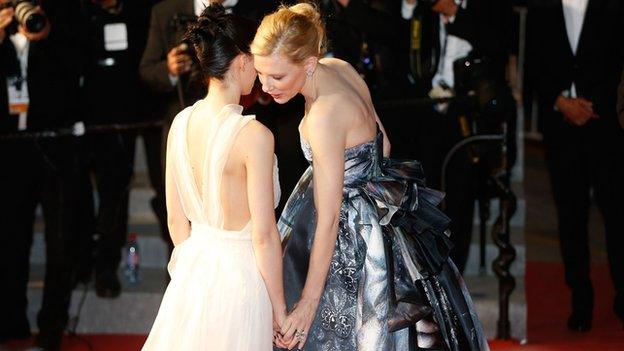
Rooney Mara and Cate Blanchett embark on an illicit lesbian affair in Todd Haynes's film Carol.
As the Cannes Film Festival draws to a close, the question critics are asking is whether Todd Haynes's coming-of-age lesbian drama, Carol, will take the prestigious Palme D'Or.
Adapted from the 1952 novel The Price of Salt, by Patricia Highsmith, this tale of two women, of different ages and backgrounds, falling in love in post-war New York City, caused ripples of shock when it was first published. And even in 2015, the film version, starring Cate Blanchett and Rooney Mara, has become a major talking point of the festival.
"Todd has made a beautiful film," is the opinion of Blanchett, who also served as a producer on the project.
"I think Carol's appeal is that it captures exactly that feeling of intoxication you have when you fall in love. You would get that heart-stopping experience whether it was two women, two men or a man and a woman.
"In a way it's front and centre of the film that it's two women who fall in love, but in other ways it's totally irrelevant. It's the experience of love which gives the film its power."
In 1952, homosexuality was illegal, and Blanchett's character, Carol Aird, faces losing custody of her daughter in a bitter divorce battle because of her affair with another woman.
Blanchett calls the premise of the original novel by Highsmith as "arresting and unusual - the idea of love as a criminal act".
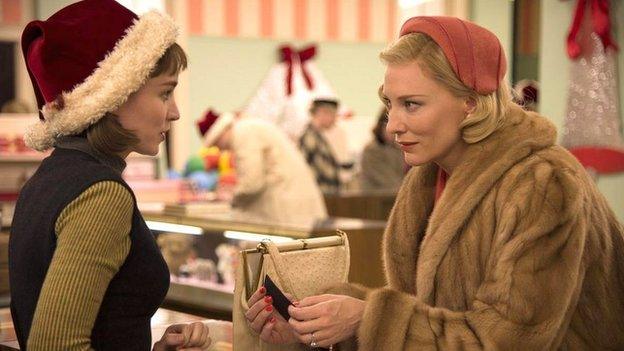
Mara plays an impressionable shop girl to Blanchett's worldly urban sophisticate
"This kind of love wasn't just forbidden, it was illegal, and is still illegal in more than 70 countries today, of course," says Blanchett. "It's a hook for the plot, because all great love stories need obstructions in their way."
Carol has won five stars ratings from critics at the festival, and almost unanimous praise. The Telegraph says: "Cate Blanchett will slay you", while the Guardian calls it "an outstandingly intelligent movie" - furthering speculation that the film could win the festival's coveted top prize.
Should that happen, it will be the second time in three years that a drama about two women exploring their sexuality finds favour at Cannes after La Vie d'Adele (Blue is the Warmest Colour) won the Palme D'Or in 2013.
Like its predecessor, Carol too has still been the subject of much press speculation, with Blanchett publicly refuting reports that she has had relationships with women in the past.
"'She's playing the lesbian so she must be a lesbian,' that's the thinking," Blanchett says.
"Who cares, really? I suppose that you don't often see it on screen still and that's why we're talking about it."
'Quiet movie'
"The thing about Carol is that it allows heterosexual people to experience love for the first time in a way, because it's as if love is being invented for the first time. There's nothing unusual in seeing love between a man and a woman in films - you are seeing something fresh and new because it's not depicted that often."
"I hope people who still have prejudices will see the film," adds Blanchett's co-star Rooney Mara, who plays Therese, the woman Carol falls in love with.
"I think they would have a lot of empathy with the film, and just see them as two human beings."
When Ang Lee's Brokeback Mountain, the story of a love affair between two cowboys, starring the late Heath Ledger, was first released in 2005, it was hailed as the first high profile Hollywood exploration of male homosexuality.
According to Todd Haynes, who also directed both Ledger and Blanchett in Bob Dylan inspired biopic I'm Not There, Carol had been in production for nearly 13 years "and had a very small budget, as you can imagine".
"On paper it hardly appeals to that precious male filmgoer that we are so eager to include," says Haynes.
"However, I think no one is excluded from the experience of love in this film. I feel like it's a quiet movie and that audiences are ready to watch a film like this."
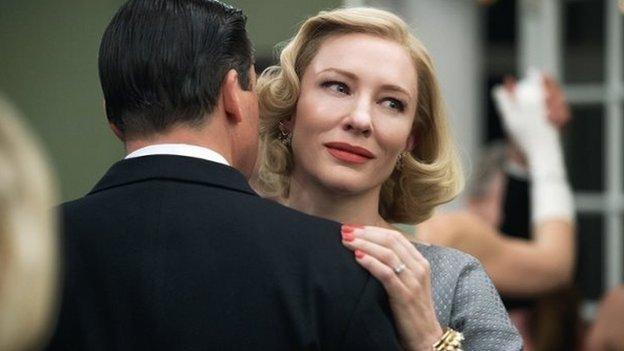
The film also stars Kyle Chandler as Carol's husband
One of the major discussion points of the Cannes Film Festival this year has been the perceived exclusion of women from filmmaking roles in Hollywood, along with what Charlize Theron recently described as "the one-dimensional roles women are often offered".
Blanchett, who makes her directing debut later this year with an adaptation of the Herman Koch novel The Dinner, notes that Carol offers "strong female characters for myself and Rooney Mara to play".
"I see this as a very special film, a real labour of love, a movie of no budget and immense ambition.
"I haven't been in competition before in Cannes and I feel tremulous about it all. However, even if it wins nothing, I'm overwhelmed by the response."
- Published17 May 2015
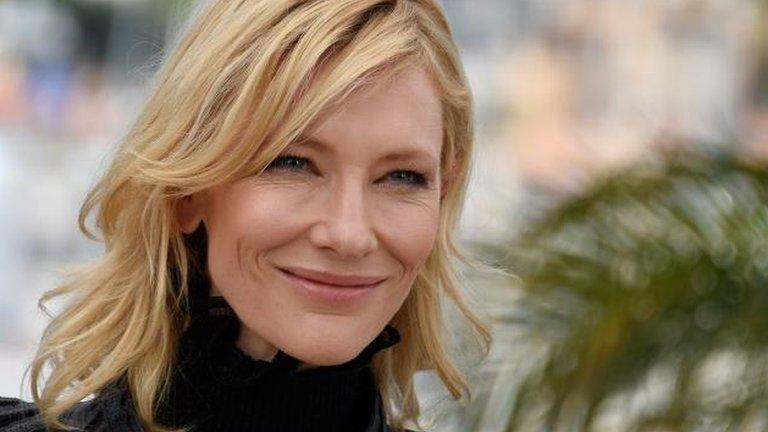
- Published12 May 2015
